第12章 THE LOVE OF ANTELOPE(11)
Again it was summer. Never had the moun- tains looked grander or more mysterious to the eyes of the two. The valley was full of the music and happiness of the winged summer peo- ple; the trees wore their summer attire, and the meadow its green blanket. There were many homes made happy by the coming of little peo- ple everywhere, but no pair was happier than Stasu and her husband when one morning they saw their little brave lying wrapped in soft deerskins, and heard for the first time his plaintive voice!
That morning, when Antelope set out on the hunt, he stopped at thestream and looked at himself seriously to see whether he had changed since the day before. He must now appear much graver, he said to himself, because he is the father of a new man!
In spite of himself, his thoughts were with his own people, and he wondered what his old grandmother would have said to his child! He looked away off toward the Black Hills, to the Sioux country, and in his heart he said, "I am a coward!"The boy grew naturally, and never felt the lack of playmates and companions, for his mother was ingenious in devising plays for him, and in winning for him the confidence and kindness of the animal friends. He was the young chief and the hero of No Man's Trail! The bears and wolves were his warriors; the buffalo and elk the hostile tribes upon whom he went to war. Small as he was, he soon pre- ferred to roam alone in the woods. His par- ents were often anxious, but, on the other hand, they entertained the hope that he would some day be "wakan," a mysterious or supernatural man, for he was getting power from his wild companions and from the silent forces of nature.
One day, when he was about five years old, he gave a dance for his wild pets upon the little plateau which was still their home. He had clothed Mato, the bear, in one of his father's suits as a great medicine-man. Waho, the wolf, was painted up as a brave; and the young buffalo calf was attired in one of his mother's gowns. The boy acted as chief and master of ceremonies.
The savage mother watched him with un- disguised pride, mingled with sorrow. Tears coursed down her dusky cheeks, although at the same time she could not help laughing heartily at the strange performance. When the play was ended, and she had served the feast at its close, Stasu seemed lost in thought.
"He should not live in this way," she was saying to herself. "He should know the tra- ditions and great deeds of my people! Surely his grandfather would be proud of the boy!"That evening, while the boy slept, and Mato lay outside the lodge eagerly listening and snif- fing the night air, the parents sat silent and ill at ease. After a long time Stasu spoke her mind.
"My husband, you ask me why I am sad. It is because I think that the Great Mystery will be displeased if we keep this little boy for- ever in the wilderness. It is wrong to allow him to grow up among wild animals; and if sickness or accident should deprive him of his father and mother, our spirits would never rest, because we had left him alone! I have decided to ask you to take us back, either to your peo- ple or to my people. We must sacrifice our pride, or, if needs be, our lives, for his life and happiness!"This speech of Stasu's was a surprise to her husband. His eyes rested upon the ground as he listened, and his face assumed the proverbial stoical aspect, yet in it there was not lacking a certain nobleness. At last he lifted his eyes to hers, and said: